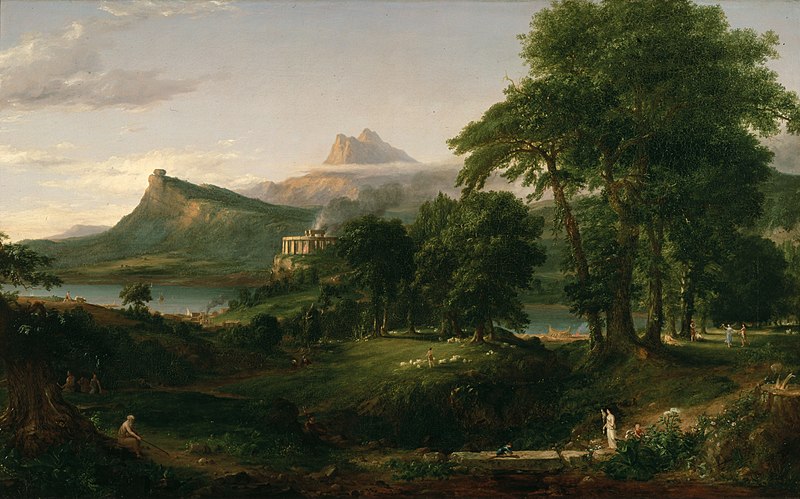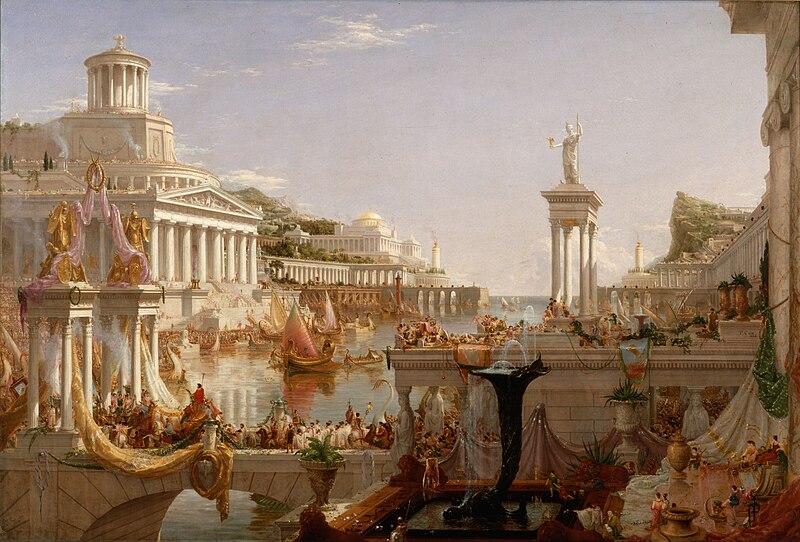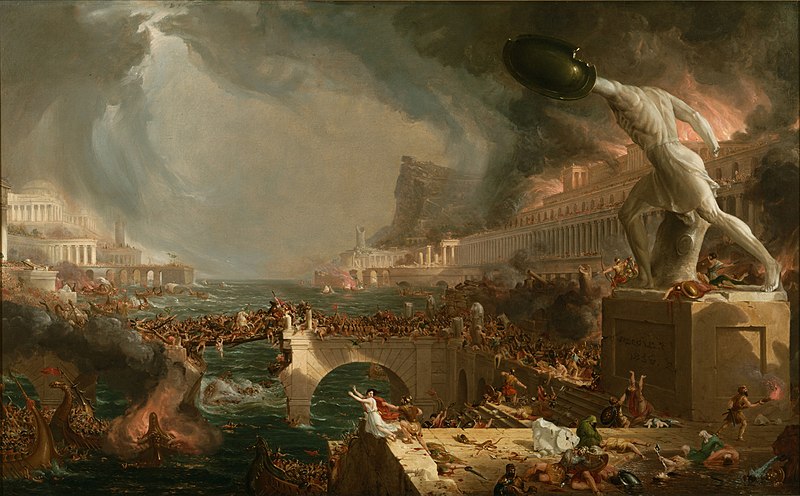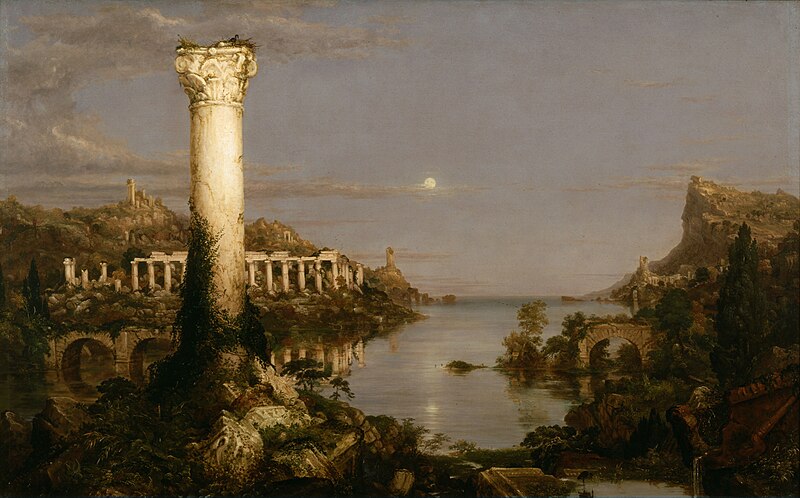To anyone of a vaguely reactionary persuasion, the fall of Rome is a melancholy and tantalising story. The inescapable conclusion, no matter how exactly you explain the fall, is that progress is neither inevitable nor irreversible. Civilisation is fragile, and can be destroyed by a sequence of wrong decisions.
This fact used to be widely appreciated - empires and civilisations were considered to be subject to cycles of rise, power, decay and fall. You can see this, for instance, in Thomas Cole's series of paintings, "The Course of Empire", painted between 1833-1836.

The Savage State

The Arcadian or Pastoral State

The Consummation of Empire

Destruction

Desolation
Of course, we live in an age where Whig history is the only history there is. Americans seem to contemplate the possible end of the glorious American experiment the way most people contemplate death. That is to say, not very often. And when they do, usually only when pressed on the issue, they'll acknowledge that it probably will happen eventually, but then they act as if it is only likely to occur in a very long time.
Then again, that's what the Romans thought too.
Which, to the conservative, makes the matter more alarming. Thinking you're not about to collapse and be overrun is a relatively weak indicator that you aren't, in fact, about to collapse and be overrun.
And in some sense, the modern American position is less forgivable than the Roman one. Today, we have the Romans as an example to consider. When Rome fell, there had not been any comparably long-lived Empire that had ever gotten that far, let alone one that had and had subsequently collapsed.
And while the inevitability of decay is true, the timeline iteslf is not. The other view is the less fatalistic one - try to figure out what exactly Rome did wrong, and try to make sure the same mistake isn't made again, to at least cheat the reaper a little longer. Such as not letting in barbarian hordes in numbers so large that they can sack your capital.
This is true, and a very useful exercise. But it's necessarily quite speculative. Why, exactly, did Rome let in the Goths, and could that have been changed? Harder to say. Would it have fallen anyway at some subsequent point not too long after? Even harder to say.
But there is one lesson that does seem useful, if understudied.
As I've written about before, the major blind spot of many Europeans (pace the Greeks) is that they equate the end of Rome with the end of the Roman Empire. But this was only the end of the Western Roman Empire. The Eastern Roman Empire, in Byzantium, continued on for roughly another thousand years. It may not have advanced to the same heights as the former, but you'd much rather be living there in 483AD than in Rome.
Which seems to suggest that if the collapse is coming, partition and separation may offer a better chance for partial survival.
The attitude of the West on these matters begins to resemble the process that Paul Fussell described pithily, if depressingly, about World War I:
This "slowly dawning and dreadful realisation" usually occurs as a result of two stages of rationalization and one of accurate perception:
1. It can't happen to me. I am too clever / agile / well-trained / good-looking / beloved / tightly laced / etc.
This persuasion gradually erodes into:
2. It can happen to me, and I'd better be more careful. I can avoid the danger by keeping extra alert at all times / watching more prudently the way I take cover or dig in or expose my position by firing my weapon / etc.
This conviction attenuates in turn to the perception that death and injury are matters more of bad luck than lack of skill, making inevitable the third stage of awareness:
3. It is going to happen to me, and only my not being there is going to prevent it.An individual may pack up and move, of course, but a country cannot.
A region can, however, choose to not be part of the same dysfunctional polity that is about to collapse.
Easier said than done, unfortunately. Rome had the virtue of having a Diocletian. America, however, does not.
No comments:
Post a Comment